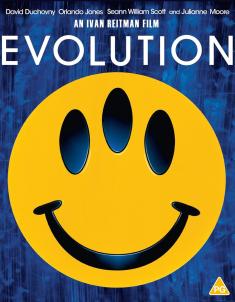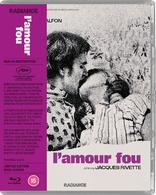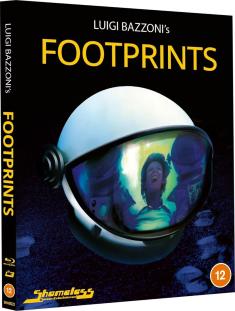Fed Up
Overview -
Narrated by Katie Couric, 'Fed Up' blows the lid off everything we thought we knew about food and exercise, revealing a 30-year campaign by the food industry – aided by the U.S. government – to mislead and confuse the American public. Exposing the hidden truths contributing to one of the largest health epidemics in history, the film follows a group of families battling to lead healthier lives – and reveals why the conventional wisdom of "exercise and eat right" is not ringing true for millions of people struggling with diabetes, childhood obesity and other serious conditions. Including captivating interviews with the country's leading experts, this vital information could change the way we eat forever.
Storyline: Our Reviewer's Take
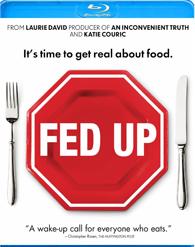
America is in the midst of an obesity epidemic, and as much as people would like to blame willpower or the oft-referenced excuse of "genetics," the truth, according to 'Fed Up,' is that the food American citizens consume is so laden with sugar that the proverbial weight loss deck is perpetually stacked against them.
"This generation will live shorter lives than their parents." That is the predominant factoid of the new documentary from director Stephanie Soechtig, seeking to examine the root cause of obesity in this country. Specifically, Soechtig's film, narrated and produced by Katie Couric, is concerned with answering why so many more young people than ever before are overweight and are either already dealing with the complications from type 2 diabetes or will be very soon.
The answer, then, according to the findings of the film, and the various researchers brought in to verify its compelling claims is that obesity isn't necessarily the fault of the individual, but rather that he or she is the victim in the food industry's efforts to make their products more consumable and palatable by adding copious amounts of sugar to nearly everything they sell. The claim of those in the know – including advocates, such as Dr. Michael Pollan, the ironically named Dr. Marion Nestle, and Mark Brittman – is that research shows sugar to be as powerfully addictive a chemical as cocaine. Essentially, the food industry is getting people's brains hooked on their products in much the same way a drug dealer would an ounce of China White.
Many in the film don't go so far as to make the cocaine comparison, but 'Fed Up' certainly doesn't shy from calling addictive, sugar-laden foods "the new tobacco." And when looking at congressional testimony of members in the food industry, like Shelly Rosen of McDonald's Corporation, who asserts with a straight face that Ronald McDonald doesn't market to children, "he informs and inspires through magic and fun," it's not hard to see how that comparison is totally apt.
As a film, 'Fed Up' relies heavily on the statistical side of its content, rather than the documentary side of the real world struggle with weight. And that's not necessarily a bad thing, considering the information given is actually important and interesting. But watching as a series of graphs filled with data on sugar content in processed foods zoom by is not the most compelling way to get an important message across. After a short while, the information all essentially looks the same. Sure, it's consistently damning for the food industry, but seeing how low-fat granola bars contain the same amount of sugar as regular calorie granola bars has no more real impact than finding out the same is true for any consumable Americans (and the rest of the world) so readily purchase at the supermarket.
Moreover, while ensuring the public has the information they need to make better, more informed decisions when shopping, going out to eat, or, most troublingly, have their children eat in their school's cafeteria, that relentless focus on data shifts the balance of the film away from its most compelling element: the human impact.
It's easy to see why Soechtig would want to inundate her audience with these numbers, as they certainly paint an unflattering picture of the food industry, but 'Fed Up' only seems concerned with those responsible for making these addictive, sugar-rich foods inasmuch as it informs the audience how their eating habits and the habits of their children are having a negative impact on their health.
As the film follows the obesity concerns of several teenagers, it takes the time to come into their homes, talk with their families and discover the kind of nutritional decisions they are making. And credit to these families for being willing to show how their decisions on what they purchase at the supermarket, and how it is based largely on a company's claims that a new product is "fat free" or "reduced calorie." At one point, the film even documents Michael Pollan coming into the home of one of the film's subjects to instruct the family on how to cook "real food." And herein lies one of the programs that 'Fed Up' is intending to promote. The "real food" premise is a fairly simple one, in that it encourages families to give up processed foods in exchange for healthier, fresh foods that are high in fiber and have other nutritious qualities.
That seems all well and good, and as the film points out when it interviews former President Bill Clinton, campaigns such as this help to inform Americans how to make better decisions in the kinds of food they eat. But by shifting its focus away from the ills of the food industry, 'Fed Up' essentially becomes a 99-minute commercial for this sometimes-vague, sellable notion of "real food," while ostensibly accepting the fact that the food industry is more concerned with profits than it is the basic welfare of its customers.
That sort of sad, cynical, shrugging acceptance of how the American government is largely run by special interest groups and corporations that will do anything so long as they can turn a profit is nearly as bad as the inevitable above-it-all commenters who look at these films and reflexive say things like, "Well of course that's the way things are," or "I can't believe anyone is surprised by this fact," as if that response contains actual merit. It's as though the only two options are: recognizing certain institutional failures and finding as unsophisticated a workaround as possible or making self-aggrandizing statements declaring oneself as having already been resigned to the inexorableness of corporate influence.
The trouble is, both responses are too simplistic.
Case in point, Dr. Pollan's solution to consumers being sold unhealthy food is for them to shop at a farmer's market. Furthermore, he actually tells the family he's trying to help eat better that they can eat as much "real food" as they want, because the fiber in it will keep them from overeating.
And initially 'Fed Up' treats this as some kind of proof of concept, as later it is announced how those Pollan had helped had all lost weight. But at the end, [SPOILER] the film just casually remarks the child in question had gained all the weight he'd lost back, without explaining how, why, or how quickly.
Ultimately, 'Fed Up' makes a compelling case against sugar consumption by revealing some thought-provoking facts. But the film needed to go further in its attacks on the policies and policymakers who have allowed the U.S. to get caught up in this predicament in the first place.
The Blu-ray: Vital Disc Stats
'Fed Up' comes from Anchor Bay as a single 50GB Blu-ray disc inside the standard keepcase. There are a handful of similarly themed previews ahead of the top menu, but they can all be skipped. The disc also contains 'Fed Up' en Español with Kuno Becker – which is the full-length film with Spanish narration. Hilariously, inside the case, is an offer for a one-year subscription to Eating Well magazine.
Video Review
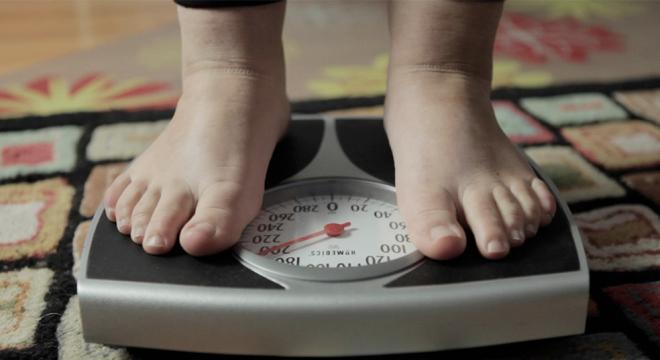
Despite not offering much in the way of a cinematic experience, the 1080 AVC/MPEG-4 encoded transfer of 'Fed Up' is crystal clear and full of fine detail. The image is bright, especially when showing computer-generated statistics, which are clear and easy to read. The film is all about presenting its information in an easy to consume (no pun intended) fashion, and the image does a great job of facilitating that.
Interviewees and documentary subjects are presented with a good amount of fine detail. Facial features and skin tones both look accurate throughout the film, while textures on things like clothing and background elements come through looking sharp and detailed. Contrast is quite high throughout, though there are a few instances where whites run a little hot, which typically coincides with some softer focus that affects fine detail only slightly. Black levels are strong, producing full-bodied blacks and crisp shadows that are free of banding or crush. Color is bright and vibrant throughout as well.
Overall, this is a very nice looking image that is only affected negatively by some slight issues with contrast.
Audio Review

The DTS-HD Master Audio 5.1 sounds very good from start to finish. Dialogue from both the interview subjects as well as the narrator comes through cleanly and distinctly. There are a few instances of atmospheric effects, during the scenes depicting various schools, and that atmosphere delivers some additional depth, but it is nominal to be honest. The musical score also clean and comes through with some nice depth at times, as it will be stretched between the front channels and the rear channels depending on how heavy the center channel dialogue is.
Mostly, this is a straightforward mix that puts dialogue first and the film is probably better for it. Since the movie itself is adorned with plenty of graphics and other elements to make the information more palatable, having an unfussy soundtrack helps in terms of delivering a presentation that isn't all about noises and musical score, to help aid the graphical side of things.
In the end, the mix sounds great, even though there really isn't much to it.
Special Features

Deleted Scenes (HD, 13 min.)
In the end, 'Fed Up' manages to deliver some sobering statistics about the amount of sugar contained in the food we eat. It even does an admirable, but largely superficial job at proposing an alternative that can lead to healthier lives. But the film too quickly glosses over the issue at hand that's even more problematic than sugar: The corporations who successfully lobby so their products continue to be put on store shelves; they can continue to market to children and make false claims about the nutritional value those products; and that they can lessen the visibility of how much sugar goes into the food that is packaged as "low fat" or "reduced calories." As facile as it is at times, the film really should be seen, so it comes recommended.






